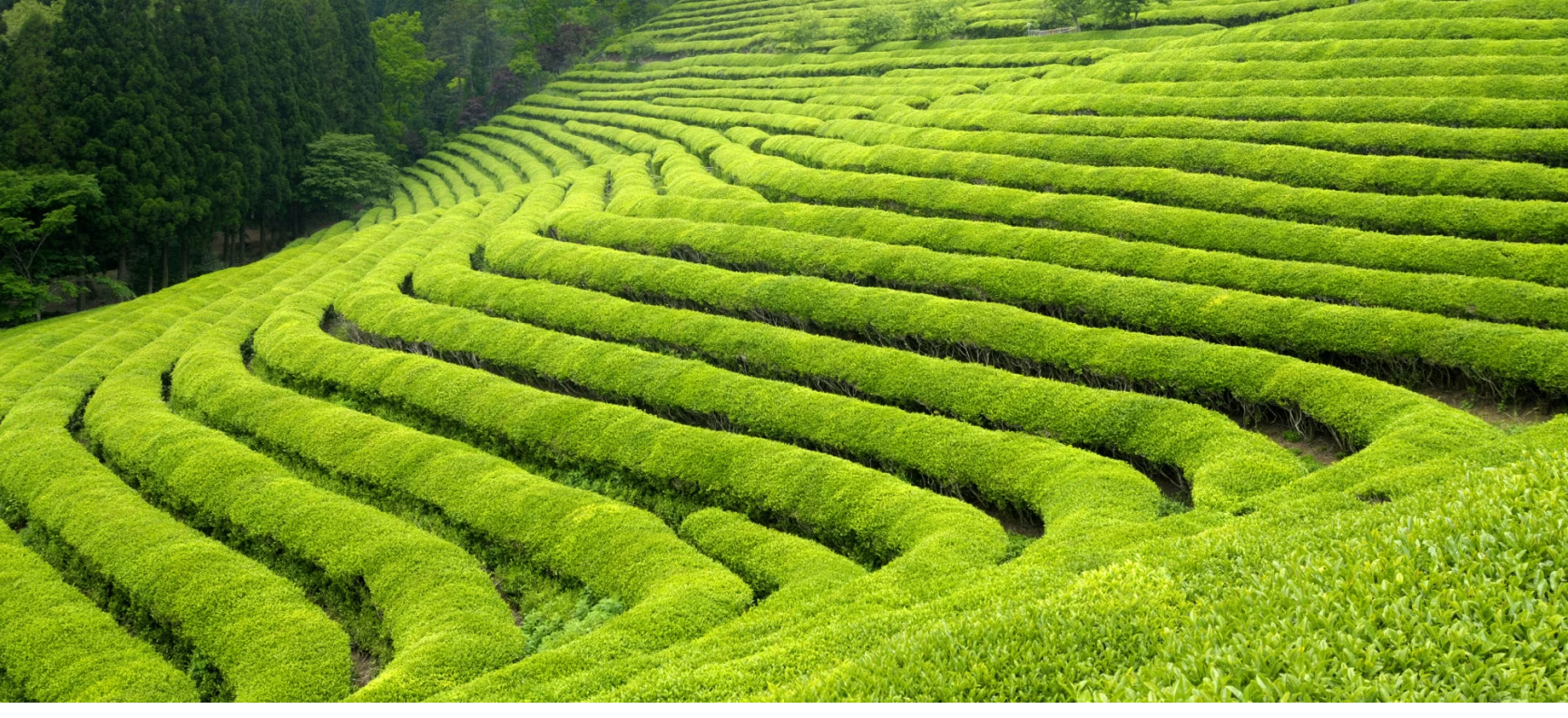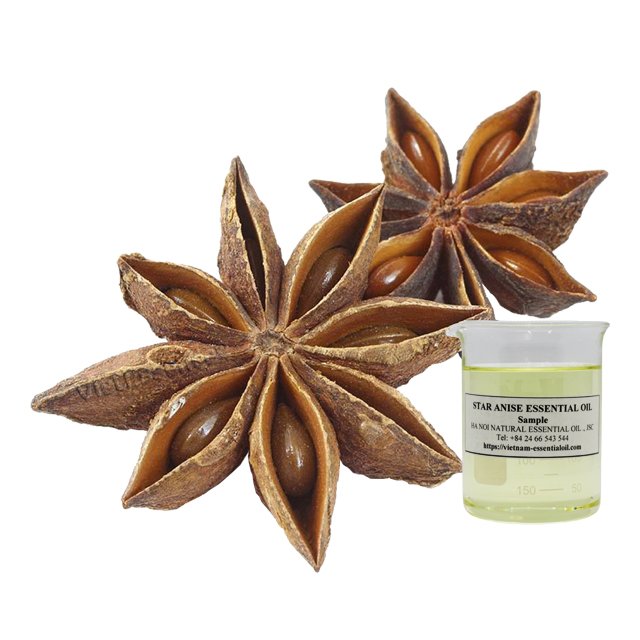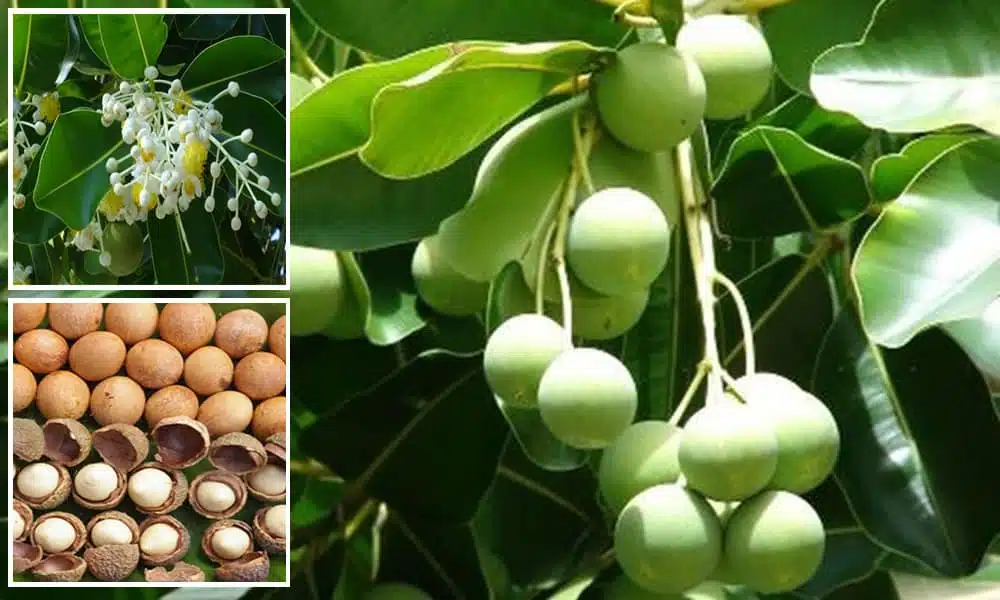
Basil oil
Category:
- CAS : 8015-73-4
- Science name : Ocimum basilicum
- Taste, Color : Slightly fragrant anise scent, Liight yellow to amber color
- Origin : Vietnam
- Extraction method : Steam distillation
- Main ingredient : Methyl chavicol từ 75 – 87%
- Annual output : 20 Tons/ Year
- Harvest season From May to September
RAW MATERIAL AREA
Basil is a short-term plant, widely grown in the Red River Delta region, along the provinces of Hung Yen, Hanoi, Ha Nam, and Ninh Binh.
Vietnamese basil has superior quality compared to Indian basil, with a minimum methyl chavicol content of 75%, very popular with famous food flavoring companies.
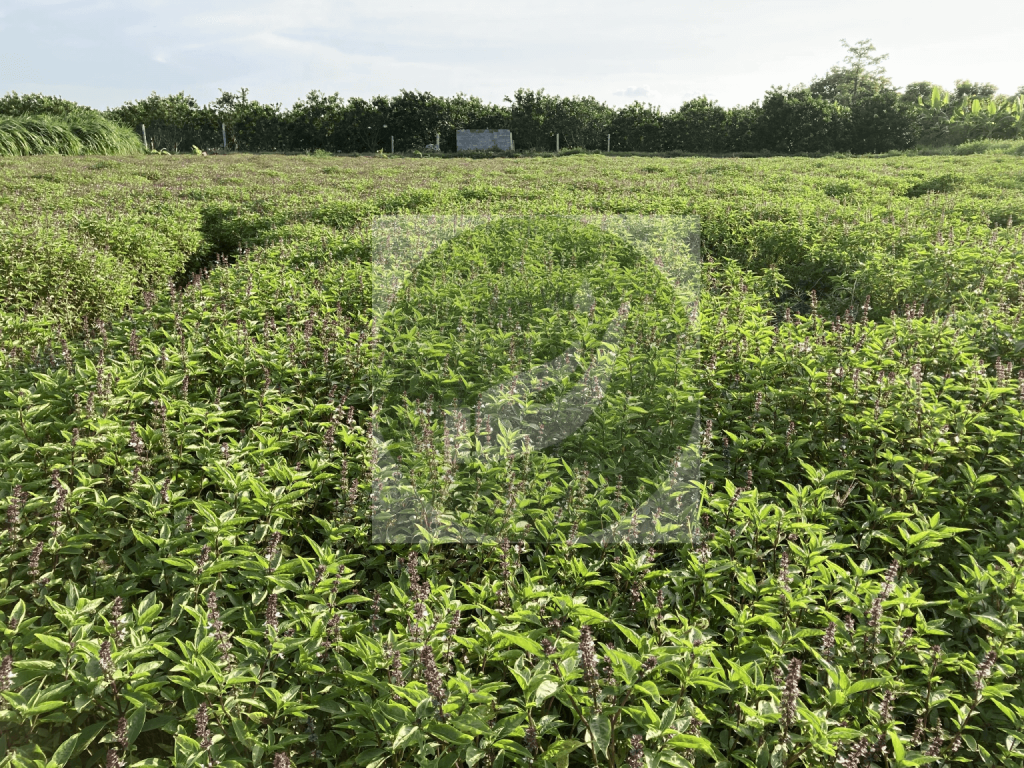

HARVEST
When the tree matures and blooms, the essential oil content in the tree is highest. At that time, the entire above-ground part will be cut to distill the essential oil.
After cutting, the tree will continue to bud, germinate and produce the next harvest. A year will yield about 3 such crops, then the tree will grow slowly, and must be replanted with new trees next year.
DIstillation of Basil ESSENTIAL OIL
The distillation equipment uses steam distillation technology and heating through a large capacity boiler.
The condenser uses beam tube condenser technology, ensuring maximum efficiency. Each ton of basil yields about 4kg of essential oil.
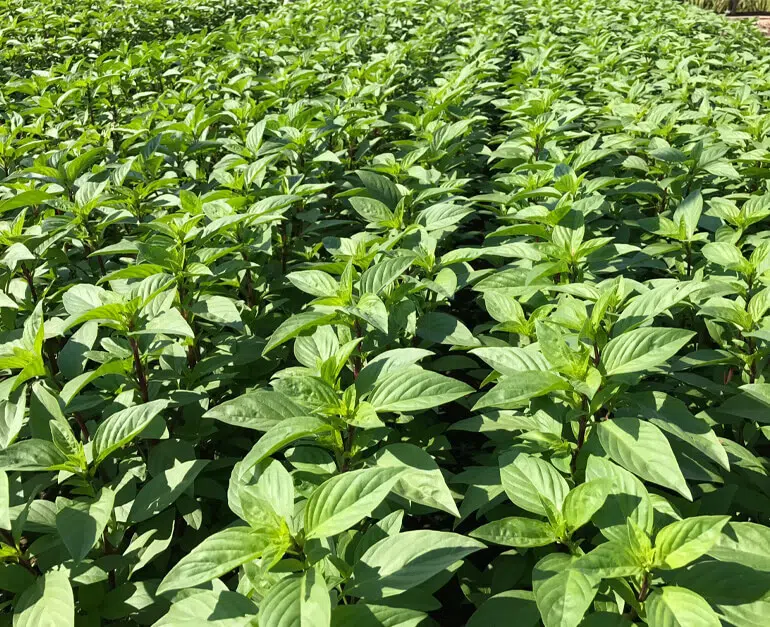
APPLICATION OF BASIL ESSENTIAL OIL IN PRODUCTION
Food industry: Basil is an indispensable spice in tomato sauces, juices and pesto dishes. When combined with marjoram, it will create a perfect pizza sauce. In addition, basil is also often used as a spice to marinate dishes from fish, poultry, beans, eggs, zucchini, carrots, potatoes… Every year, Vietnam exports about 20-30 tons of basil essential oil to serve the food industry
Cosmetic and pharmaceutical industrialization: Since ancient times, basil has been used by Indians as an essential beauty herb thanks to its effects in preventing acne, eliminating inflammation, and reducing hair loss. In addition, basil is considered an excellent antioxidant herb thanks to its ingredients containing antibacterial active ingredients such as eugenol, limonene, estragole, myrcene, cineol, linalool… Basil has a clear effect in preventing the spread and growth of many types of bacteria: Staphylococcus aureus, Listeria monocytogenes, Yersinia enterocolitica, Escherichia coli and Pseudomonas aeruginosa.
- Thanks to its antibacterial and antioxidant properties, basil essential oil is increasingly being included in cosmetic research such as perfume fragrances, air deodorizers, insect repellents, and sedative and stress-relieving massages. stress, anxiety, fungus treatment products, dermatitis, hair care products…
- According to assessments of forecasting demand for basil essential oil in particular and spice essential oil in general, consumption of basil essential oil will continue to increase in the near future thanks to the trend of using these products. organic products in food.


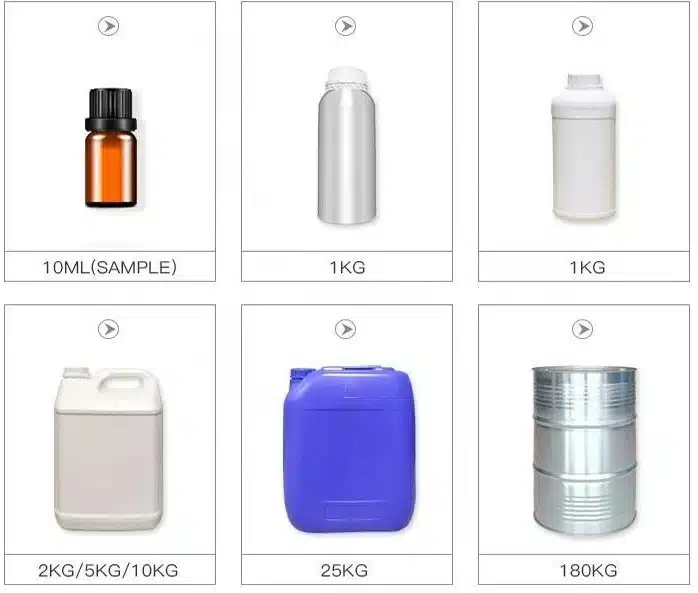
PACKING, STORAGE & TRANSPORTATION SPECIFICATIONS
Packaging: Basil essential oil is packaged in Liters or Kg depending on customer requirements: 1L, 5L, 10L, 30L, 180L/ 1Kg, 5Kg, 10Kg, 30Kg, 180Kg…
Storage: Product is contained in standard HDPE packaging. Store in a cool, dry place, away from direct sunlight. Do not let essential oils fall into your eyes, open wounds, or sensitive skin areas.
Shipping: Domestic: Flexible shipping nationwide by train, car, plane…
Export: Ship/Airplane, Export conditions: FOB/ CIF/Door to door…






